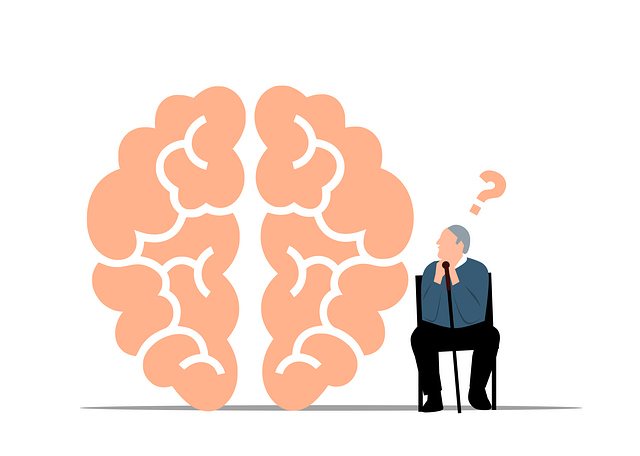Mental illness stigma, rooted in misconceptions and societal attitudes, poses significant barriers to individuals' well-being. Englewood Bariatric Evaluations Therapy (EBET) addresses this through education, advocacy, and therapeutic practices that foster emotional regulation. EBET combines specialized treatment, mental wellness journaling, and community outreach to create safe spaces for open dialogue about mental health. By encouraging participants to challenge negative thoughts and beliefs, the program empowers them to navigate their journeys with support. Reducing stigma requires collaborative efforts, including Emotional Well-being Promotion Techniques, Social Skills Training, and Mindfulness Meditation, which can be integrated into educational and therapeutic settings. EBET's holistic approach, emphasizing open conversations, self-care, and mental well-being, aims to improve access to care and enhance the quality of life for those facing mental health challenges.
Mental illness stigma remains a significant barrier to effective treatment and recovery. This article explores comprehensive strategies to reduce this pervasive societal issue. We delve into the causes and profound impact of mental health stigma, highlighting its detrimental effects on individuals and communities.
Key focus areas include the role of Englewood Bariatric Evaluations Therapy in providing specialized support, effective societal challenges through education, and the continuous need for advocacy and awareness promotion. By understanding these aspects, we can foster a more inclusive and supportive environment.
- Understanding Mental Illness Stigma: Causes and Impact
- The Role of Englewood Bariatric Evaluations Therapy in Stigma Reduction
- Effective Strategies for Challenging Stigma in Society
- Continuous Efforts: Educating and Advocating for Mental Health Awareness
Understanding Mental Illness Stigma: Causes and Impact

Mental illness stigma is a complex social issue that perpetuates discrimination and hinders individuals from seeking necessary support and treatment. This phenomenon often arises from misconceptions, fear, and a lack of understanding about mental health conditions. Englewood Bariatric Evaluations Therapy recognizes that stigma can have profound effects on those affected, leading to isolation, reduced quality of life, and even increased risk of suicide.
The causes of stigma are multifaceted, stemming from societal attitudes, media portrayal, and personal experiences. Many believe that mental illness is a sign of weakness or personal failure, which contributes to the stigmatization. Organizations like Stress Management Workshops focus on addressing these issues by promoting education, advocacy, and the adoption of Mind Over Matter Principles to foster Emotional Regulation. Through initiatives such as awareness campaigns, support groups, and community outreach programs, they aim to dispel myths, encourage empathy, and create an environment where individuals with mental health challenges feel accepted and supported.
The Role of Englewood Bariatric Evaluations Therapy in Stigma Reduction

Englewood Bariatric Evaluations Therapy (EBET) plays a pivotal role in mental illness stigma reduction efforts. Through its comprehensive approach, EBET not only provides specialized treatment for individuals struggling with obesity but also delves into the intersection of physical and mental health. By integrating mental wellness journaling exercises and community outreach program implementations, EBET fosters an environment where individuals can openly discuss their experiences without fear of judgment.
This therapeutic model emphasizes Mind Over Matter principles, encouraging participants to challenge negative thoughts and beliefs associated with mental illness and obesity. Regular interactions within supportive communities enable members to share stories, offer guidance, and celebrate victories together. This collective experience helps normalize conversations around mental wellness, gradually breaking down societal barriers and reducing the stigma that often prevents individuals from seeking help.
Effective Strategies for Challenging Stigma in Society

Reducing stigma associated with mental illness is a multifaceted approach that requires collective efforts from various sectors of society. One effective strategy is to promote Emotional Well-being Promotion Techniques that emphasize open conversations about mental health. Encouraging individuals to share their experiences and destigmatizing these discussions can foster empathy and understanding within communities, including those in Englewood Bariatric Evaluations Therapy settings.
Additionally, integrating Social Skills Training and Mindfulness Meditation into educational and therapeutic programs has proven beneficial. These practices help individuals develop coping mechanisms, improve self-awareness, and enhance their ability to connect with others. By implementing such techniques, society can create supportive environments that encourage those facing mental health challenges to seek the necessary support without fear of judgment, ultimately contributing to a more inclusive and caring community.
Continuous Efforts: Educating and Advocating for Mental Health Awareness

In the ongoing fight against mental illness stigma, continuous efforts are needed to educate and advocate for mental health awareness. This includes initiatives that go beyond mere information dissemination; it involves fostering open conversations, encouraging self-care practices, and promoting self-awareness exercises that can help individuals recognize and manage their mental health proactively. By integrating stress reduction methods into daily routines, communities can create a more supportive environment where those facing challenges feel empowered to seek help without fear of judgment.
Englewood bariatric evaluations and therapy play a significant role in this narrative by offering specialized services tailored to individual needs. Through advocacy and education, these efforts aim to dispel myths and misconceptions surrounding mental illness, fostering a culture that prioritizes mental well-being on par with physical health. This holistic approach, coupled with ongoing dialogue, can lead to reduced stigma, improved access to care, and enhanced quality of life for those navigating mental health challenges.
Mental illness stigma, a significant barrier to treatment, can be reduced through multifaceted efforts. By understanding the causes and impact of this societal issue, we can leverage strategies like those employed by Englewood Bariatric Evaluations Therapy to foster empathy and acceptance. Continuous education and advocacy are vital, ensuring that mental health awareness remains at the forefront, challenging stigma in all its forms. Through collaborative actions, we can create a more inclusive society where individuals affected by mental illness feel supported and empowered to seek help.








